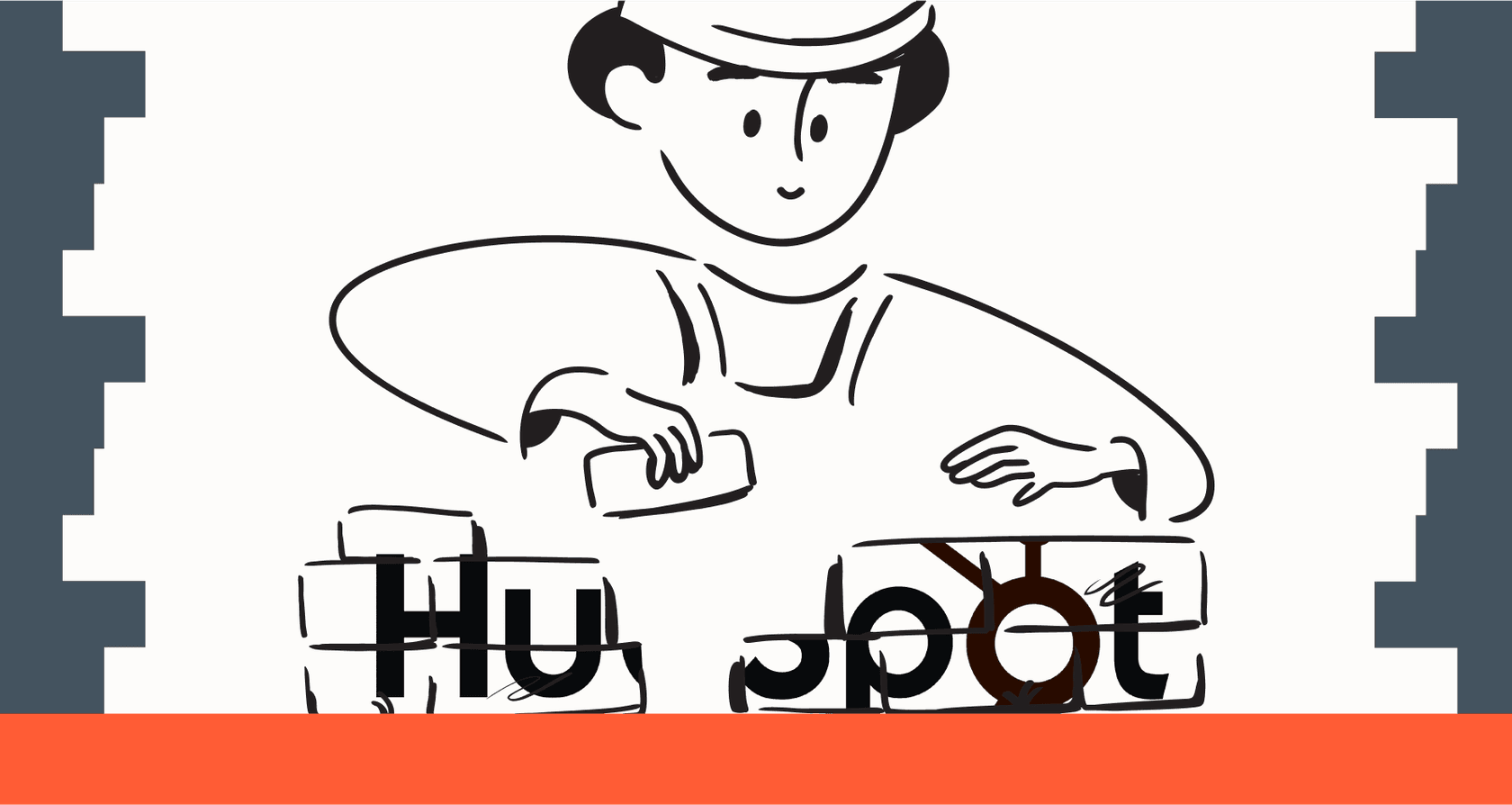The best HubSpot alternatives for small business in 2026: A strategic guide

Stevia Putri

Katelin Teen
Last edited January 16, 2026
Expert Verified

HubSpot is an absolute powerhouse. For many businesses, it’s the premier all-in-one platform for marketing, sales, and customer service. It provides a tool for every stage of the customer journey, and its free CRM is an industry-leading way to begin managing your customer relationships.
HubSpot's comprehensive power is impressive, though some small businesses find they need specialized tools as they scale. While HubSpot offers a mature, reliable ecosystem, the transition to its professional tiers is designed for teams ready for enterprise-level features. This can sometimes lead growing teams to look for specific tools to match their immediate needs.
If you’re exploring your options, you’re in the right place. This guide looks at the landscape of HubSpot alternatives for small business in 2026, helping you build a smart, cost-effective tech stack that leverages the best tools available today.
What exactly is HubSpot?
So, what’s under the hood? At its heart, HubSpot is a Customer Relationship Management (CRM) platform. Everything is built around its Smart CRM, which is a powerful central database for every interaction you have with your customers. From that core, it offers specialized “Hubs”:
-
Marketing Hub: Built for lead generation through email marketing, landing pages, and social media.
-
Sales Hub: Designed to track deals, manage pipelines, and streamline connections with potential customers.
-
Service Hub: Focused on customer support, with tools like ticketing, knowledge bases, and live chat.
-
Content Hub (CMS): A robust system for building and managing your company’s website.
The primary appeal of HubSpot is its seamless connectivity. Having all your data in one spot provides a clear 360-degree view of your customer’s journey. It’s a market leader for good reason, offering a proven inbound marketing philosophy and an incredible library of educational resources.
For some small businesses, this unified model is a great starting point. As you grow, you might find that you want to add specialized tools to your stack to handle very specific niche requirements, allowing you to tailor your software investment as you scale.
Building a modular stack: Why teams look at HubSpot alternatives for small business
The main reason small businesses explore HubSpot alternatives is to customize their total investment. HubSpot’s tiered plans are designed to grow with you, providing more advanced automation and reporting as your needs become more complex.
For some businesses, choosing a "best-of-breed" stack is a strategic move. Instead of using one platform for everything, you can connect several specialized tools that are experts at their specific functions. This modular approach provides flexibility and allows you to build a custom setup that evolves with your team.
This is particularly effective for customer support. Rather than moving entirely to a new system, you can enhance your current setup by connecting it to a dedicated AI platform like eesel AI. This provides specialized AI features that complement your existing tools, giving your team extra power without changing their workflow.
Finding the right HubSpot alternatives: Sales, marketing, and support
To find the right HubSpot alternatives for your small business, it’s helpful to identify your most pressing needs. Let’s look at some specialized tools that work well for specific roles.
HubSpot alternatives for sales-focused teams
Sales teams require a clear view of their deals and reliable forecasting. HubSpot's Sales Hub is a top-tier choice for this, providing deep automation and reporting in its professional versions. For teams looking for a more specialized focus, there are other great options:
-
Pipedrive: Known for its intuitive, visual sales pipeline. It helps reps focus on key activities and is a great option for teams that prefer a streamlined, sales-only interface.
-
Zoho CRM: A highly customizable CRM that offers a flexible range of plans. It’s an excellent choice for businesses that want to tweak their setup extensively.
These tools focus on the sales process, offering a dedicated experience that can complement your wider business strategy.
HubSpot alternatives for marketing automation
Marketing teams need to nurture leads at scale through email campaigns, landing pages, and automated workflows. HubSpot’s Marketing Hub is the industry gold standard here, offering powerful omnichannel automation for growing enterprises.
There are also specialized alternatives that focus heavily on marketing automation for small businesses:
-
ActiveCampaign: A strong choice for email marketing and automation, offering sophisticated workflow builders and lead scoring.
-
Brevo (formerly Sendinblue): An all-in-one marketing platform that bundles email, SMS, and chat. It’s well-regarded for its accessible automation capabilities.
HubSpot alternatives for customer support and service
HubSpot’s Service Hub provides a solid foundation with ticketing, a knowledge base, and live chat. It's a reliable choice for teams that want their support data integrated directly with their sales and marketing CRM.
When it's time to take your support efficiency to the next level, smart automation is key. You can add a specialized AI layer on top of your existing helpdesk to enhance your capabilities.
This is where a tool like eesel AI serves as a perfect complement for small businesses:
- Quick implementation. You can get started in minutes. eesel AI offers one-click integrations with major helpdesks like Zendesk, Freshdesk, or Gorgias.

- Trained on your company knowledge. eesel AI learns directly from your unique knowledge base, past support tickets, and documents in Confluence or Google Docs, ensuring accurate and relevant answers for your customers.

- Test with confidence. eesel AI includes a simulation mode that lets you test its performance on your past tickets. This provides a data-backed forecast of your resolution rate before you go live.

HubSpot's pricing: Understanding the value
HubSpot's pricing reflects the comprehensive nature of its platform. While there are costs associated with its more advanced tiers, these plans provide the enterprise-grade tools that many growing businesses require.
| Plan | Starting Price (Annual) | Key Features for SMBs | Ideal Use Case / Growth Path |
|---|---|---|---|
| Starter | $15/month | Basic email marketing, forms, landing pages, live chat. | Perfect for new businesses getting started with a professional CRM. |
| Professional | $800/month | Omni-channel marketing automation, custom reporting, social media tools, A/B testing. | Designed for growing teams that need advanced automation and insights. |
| Enterprise | $3,600/month | Multi-touch revenue attribution, custom objects, predictive lead scoring. | Built for large organizations with complex, high-volume requirements. |
HubSpot also provides professional onboarding services, such as the $3,000 onboarding fee for the Professional plan, to ensure your team is set up for long-term success. While these are investments, they provide access to a world-class ecosystem that many companies find invaluable as they scale.
This video explores some of the best HubSpot alternatives for small business, covering options for lead management, email campaigns, and sales tracking.
A smarter way to build your tech stack
HubSpot is an impressive, market-leading platform. Its all-in-one approach provides incredible value for many organizations. However, every small business is unique, and building a modular stack can sometimes provide the specific flexibility you need during a growth phase.
Think of your software as an evolving ecosystem. You can leverage the strengths of a world-class CRM like HubSpot while adding specialized best-of-breed tools to solve your most specific challenges.
If your support team is handling many repetitive customer questions, a dedicated AI solution can be a powerful addition to your existing setup.
If you’re ready to see how specialized AI can handle a significant portion of your customer queries while working alongside your favorite tools, take a look at the eesel AI Agent. You can get it live in minutes and see the results for yourself.
Frequently asked questions
While HubSpot's free CRM is an excellent starting point, businesses often explore HubSpot alternatives for small business as they grow and require niche automation or specific custom reporting features that fit their unique budget structure.
Switching can require some effort to migrate data, but many HubSpot alternatives for small business offer tools or services to help with this process. Many teams choose a modular approach, keeping their HubSpot CRM while integrating specialized tools for specific functions, which simplifies any transition.
HubSpot is the gold standard for all-in-one functionality. However, by combining specialized tools (e.g., ActiveCampaign for marketing, Pipedrive for sales), you can create a custom stack that matches your specific business needs alongside HubSpot's core capabilities.
Many HubSpot alternatives for small business are designed with integrations in mind, often connecting through native links or third-party platforms like Zapier. This allows specialized tools for sales, marketing, and support to share data and work together seamlessly.
Many HubSpot alternatives for small business, like ActiveCampaign or Zoho CRM, offer scalable plans that grow with your company. HubSpot itself is famously scalable, and the modular approach allows you to upgrade individual tools as your requirements evolve.
Yes, specialized AI tools like eesel AI are excellent choices that complement your setup. These can integrate with your existing helpdesk to automate responses, learning from your specific knowledge base to enhance your customer service efficiency.
Share this post

Article by
Stevia Putri
Stevia Putri is a marketing generalist at eesel AI, where she helps turn powerful AI tools into stories that resonate. She’s driven by curiosity, clarity, and the human side of technology.






